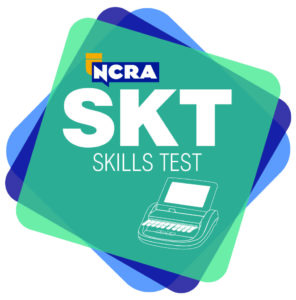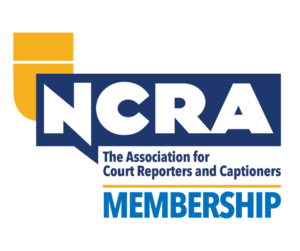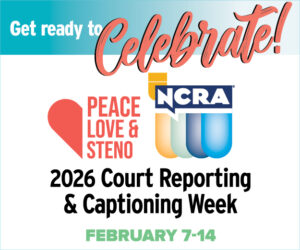Since broadcast captioning became a critical and expected service in this country, solutions related to captioning quality metrics have been elusive and NCRA, captioners, captioning companies, broadcasters, and organizations that represent individuals who are deaf and hard-of-hearing have been unable to find a realistic solution. The solution is universally understood: captions should be readable, understandable, comprehensive, and timely. However, once the conversation of defining and calculating “an error” begins, realistic and workable solutions become less apparent.
It is for this reason that a subcommittee of NCRA’s Captioning Community of Interest began to work on best practices related to captioning quality. The members comprising that group are Carol Studenmund, RDR, CRR, CBC, CCP, Amy Bowlen, RDR, CRR, CBC, Darlene Parker, RPR, Darlene Pickard, RDR, CRR, CBC, CCP, and Tracy Reinke, RPR, CRR, CBC, CCP.
After breaking out roles and responsibilities of various players within the captioning cycle, the document lists suggested best practices to captioners, captioning companies, content creators, content distributors, and consumers of captioning services. As a group, we have been reaching out to hearing health groups and captioning companies to ask for their feedback, and we have been very pleased with what we have been hearing from them. The document is not quite finished but we have received some excellent comments from these individuals and organizations which have been incorporated thus far.
Simultaneously, NCRA became aware that the Federal Communications Commission was taking a serious look at captioning standards. We were extremely concerned about potential solutions that solely dealt in specific captioning standards. What we wanted to avoid was a situation like the one that has recently become law in Canada, where simple edits a captioner makes to maintain their speed but do not affect the viewer’s understanding of the program have been ruled an error. For example, if a speaker in a program says “they are” and the captioner writes “they’re”, the regulations in Canada rule that an error. We do not buy this line of reasoning and are working on that specific situation now but that will be the subject of a different article.
Essentially, NCRA’s outside legislative counsel, Dave Wenhold, and I went to the FCC’s D.C. headquarters to meet with several representatives from its disability rights division. We explained issues that captioners often face that makes their jobs more difficult, such as lack of adequate preparation time and incomplete preparation materials, a poor audio connection, and a lack of tech support from the content creator or content provider. Additionally, we noted exactly why specific quality metrics will not improve the level of captioning that viewers receive. We left the meeting confident that if and when the FCC eventually does issue quality standards related to captioning, the interests of our captioners and captioning companies will be well-represented in the final product.
What comes next? We will be finalizing the captioning quality document that can be found at captioningmatters.org by reaching out to content creators and content providers and requesting their feedback on the document. NCRA will also be undertaking a major public relations effort aimed at educating consumers of all captioning services, content creators, content providers, and all other individuals, companies, and organizations related to captioning about how to provide the best captions for television viewers everywhere.
Finally, we will remain in contact with the FCC as they deliberate over captioning quality and push toward a workable solution for captioners and individuals who rely on captioning services, as well as pushing all media markets to caption all of their programming.
Adam Finkel is NCRA’s Assistant Director of Government Relations and can be reached at afinkel@ncra.org or 703-556-6272 ext. 159.







